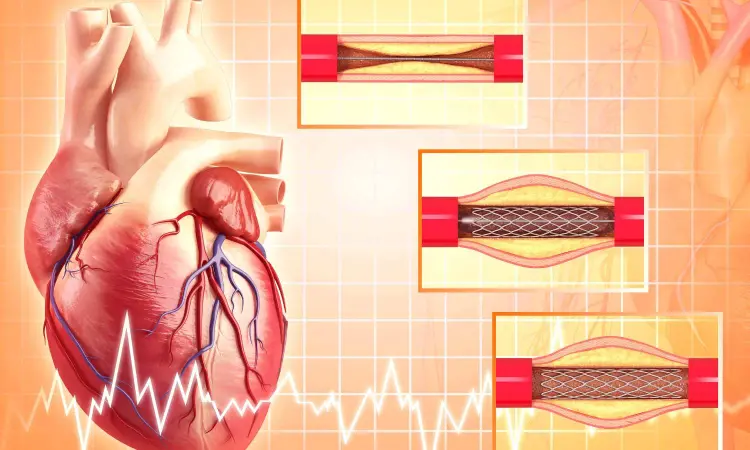- Home
- Medical news & Guidelines
- Anesthesiology
- Cardiology and CTVS
- Critical Care
- Dentistry
- Dermatology
- Diabetes and Endocrinology
- ENT
- Gastroenterology
- Medicine
- Nephrology
- Neurology
- Obstretics-Gynaecology
- Oncology
- Ophthalmology
- Orthopaedics
- Pediatrics-Neonatology
- Psychiatry
- Pulmonology
- Radiology
- Surgery
- Urology
- Laboratory Medicine
- Diet
- Nursing
- Paramedical
- Physiotherapy
- Health news
- Fact Check
- Bone Health Fact Check
- Brain Health Fact Check
- Cancer Related Fact Check
- Child Care Fact Check
- Dental and oral health fact check
- Diabetes and metabolic health fact check
- Diet and Nutrition Fact Check
- Eye and ENT Care Fact Check
- Fitness fact check
- Gut health fact check
- Heart health fact check
- Kidney health fact check
- Medical education fact check
- Men's health fact check
- Respiratory fact check
- Skin and hair care fact check
- Vaccine and Immunization fact check
- Women's health fact check
- AYUSH
- State News
- Andaman and Nicobar Islands
- Andhra Pradesh
- Arunachal Pradesh
- Assam
- Bihar
- Chandigarh
- Chattisgarh
- Dadra and Nagar Haveli
- Daman and Diu
- Delhi
- Goa
- Gujarat
- Haryana
- Himachal Pradesh
- Jammu & Kashmir
- Jharkhand
- Karnataka
- Kerala
- Ladakh
- Lakshadweep
- Madhya Pradesh
- Maharashtra
- Manipur
- Meghalaya
- Mizoram
- Nagaland
- Odisha
- Puducherry
- Punjab
- Rajasthan
- Sikkim
- Tamil Nadu
- Telangana
- Tripura
- Uttar Pradesh
- Uttrakhand
- West Bengal
- Medical Education
- Industry
Dynamic Coronary Roadmap regulates iodinated contrast during PCI, reduces contrast-induced nephropathy

USA: Dynamic Coronary Roadmap (DCR), a percutaneous coronary intervention (PCI) navigation support tool developed by health technology company Philips, effectively reduces iodinated contrast during PCI, according to findings from the DCR4Contrast trial.
The findings from DCR4Contrast, a multi-centre prospective, unblinded, randomized controlled trial, were presented today as late-breaking clinical research at the Society for Cardiovascular Angiography & Interventions (SCAI) 2023 Scientific Sessions.
Iodinated contrast enhances the ability to see blood vessels and organs during medical imaging and procedures like PCI. Contrast-induced nephropathy (CIN) is a serious complication during PCI which leads to a sharp decrease in kidney function over 48-72 hours and has similar symptoms as kidney disease. The incidence of CIN for patients undergoing PCI ranges from three to twenty percent, depending on patient co-morbidities.
In a multi-centre, prospective, unblinded, stratified 1:1 randomized controlled trial, DCR4Contrast enrolled 371 patients from six centres in the U.S., Belgium, Israel and Spain. Patients undergoing PCI were randomized to either DCR- or conventional angiographic guidance. Investigators scored the overall quality (representation of the coronary artery tree is complete) and accuracy (location of the roadmap is in the correct location during the majority of the procedure) of the roadmap during PCI.
The roadmap was used in 98% of the cases in the DCR arm. The quality of the roadmap was rated very good or good in 79% of cases, resulting in a related reduction in contrast volume. Compared to the control arm, there was a 28.8% reduction in contract used during PCI using DCR.
“We are encouraged by the contrast-sparing effect our study demonstrated and points to DCR as a potential solution to reduce the risk of CIN during a PCI, which has the potential to increase patient safety,” said John C. Messenger, MD, FSCAI, Professor of Medicine, Director, Interventional Cardiology at the University of Colorado School of Medicine University of Colorado Hospital Aurora, CO and lead author of the study. “DCR could also have potential applications in Ultra Low Contrast PCI for complex procedures. We are excited to see this software's further capabilities and use.”
Reference:
Novel virtual coronary roadmap tool reduces volume of iodinated contrast needed during percutaneous coronary interventions, Society for Cardiovascular Angiography and Interventions, Meeting, SCAI Scientific Sessions.
Dr Kamal Kant Kohli-MBBS, DTCD- a chest specialist with more than 30 years of practice and a flair for writing clinical articles, Dr Kamal Kant Kohli joined Medical Dialogues as a Chief Editor of Medical News. Besides writing articles, as an editor, he proofreads and verifies all the medical content published on Medical Dialogues including those coming from journals, studies,medical conferences,guidelines etc. Email: drkohli@medicaldialogues.in. Contact no. 011-43720751


